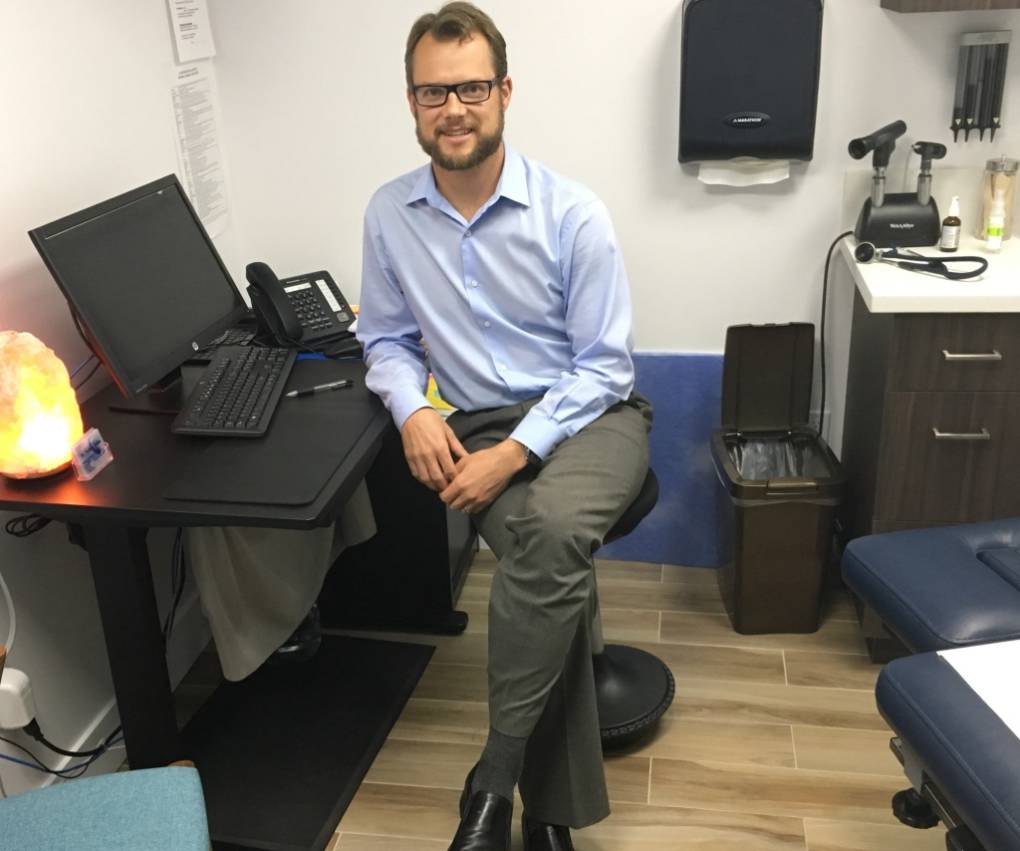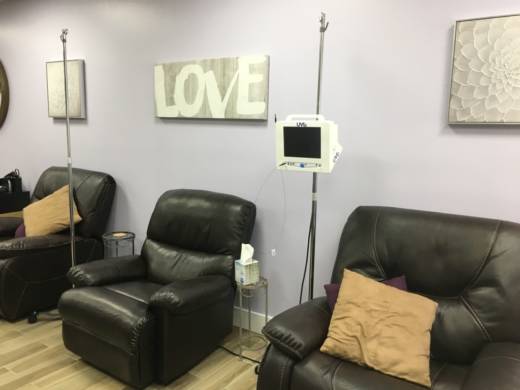"When you have something that has never been shown to be of value and has the potential to do a lot of harm, it shouldn't be used," says Dr. Paul Offit, a professor at the University of Pennsylvania medical school and author of a book about alternative medicine.
The U.S. Centers for Disease Control and Prevention doesn't track adverse events from IV hydrogen peroxide. But according to news reports, one woman died in South Carolina in 2004 after a doctor administered it as a treatment for multiple sclerosis.
The coroner concluded the hydrogen peroxide produced bubbles in the woman's blood, which led to multiple organ failure and cardiac arrest.
IV hydrogen peroxide has a lot of risk and no proven benefits, Offit says.
"If you're going to do placebo medicine, which is what I think this is, then use a placebo, because hydrogen peroxide can kill you," he says.
It's also expensive: In Southern California, treatments often cost more than a $100 per session.
No 'Solid Medical Evidence'
The California Naturopathic Doctors Association says it doesn't track how many people have gotten IV hydrogen peroxide or how many providers offer it, but the group referred KPCC to a naturopath in Grass Valley who says she's trained thousands on how to administer the treatment.
Dr. Rahm estimates he's provided about 100 treatments of IV hydrogen peroxide over the past four years. He says he's mainly used it on sinus infections and on cancer, as long as patients are also getting standard treatments like chemotherapy.
Rahm acknowledges there's no scientific proof that it works.
"Honestly, I would say no, there's not like solid medical evidence behind it," Rahm says. "Those studies haven't been done."
He defends the treatment by pointing to one patient's story as proof that it works.
Mercedes Curran, a 28-year-old from Beverly Glen Canyon, has MS, an unpredictable, degenerative disease of the central nervous system.
At one point, she couldn't control the right side of her body.
"It felt like the right side of my body had 30 extra pounds on all of it," Curran recalls. "Essentially, it would feel like that part of my body was dead."
Her neurologist recommended five rounds of steroids and physical therapy. Alongside that treatment, Rahm recommended 10 IV hydrogen peroxide sessions over two weeks.
Curran says she was skeptical, but willing to try it.
"I wouldn't say I was desperate, but at the same time, of course I wanted to walk without having to drag my leg and I love to travel and all those other things," she says.
Dr. Offit says he has "enormous sympathy" for Curran's situation. He says she, like many others, turned to alternative medicine after coming up against the limits of Western medicine.
Still, "there's just no reason to put people at this kind of risk," he says. "I think these are very vulnerable people and it's just disheartening to see that there are clinicians who are willing to step into the breach and take advantage of these patients."
Curran estimates she’s spent about $2,000 altogether on her treatments. Each time, she would relax in a lounge chair in Rahm's office, as a saline solution with 3 percent hydrogen peroxide was infused into her bloodstream.
"I felt better after the first session," Curran recalls. "I just felt like I had more energy and my body wasn't as heavy. It could've been even after two or three sessions was the first time I could flex my foot."
Anecdotes Not Scientific Evidence
Experts say it's impossible to know why Curran started feeling better.
MS symptoms sometimes improve on their own. It could've been the steroids Curran's neurologist prescribed, which can take a few weeks to kick in. Or it could've been the placebo effect.
"With one single case, we should be very careful and definitely not jump to the conclusions, especially when it comes to intravenous administration of a substance that can be toxic," says Dr. Regina Berkovich, a neurologist who specializes in MS at USC.
If naturopathic doctors like Rahm think IV hydrogen peroxide can help treat MS and other conditions, they should prove it, says Dr. Robert Califf, who served as FDA commissioner until January.
"If the treatment works, he would be doing the world a favor to show it using good scientific principles," he says, while predicting that it wouldn't be proven to work.

